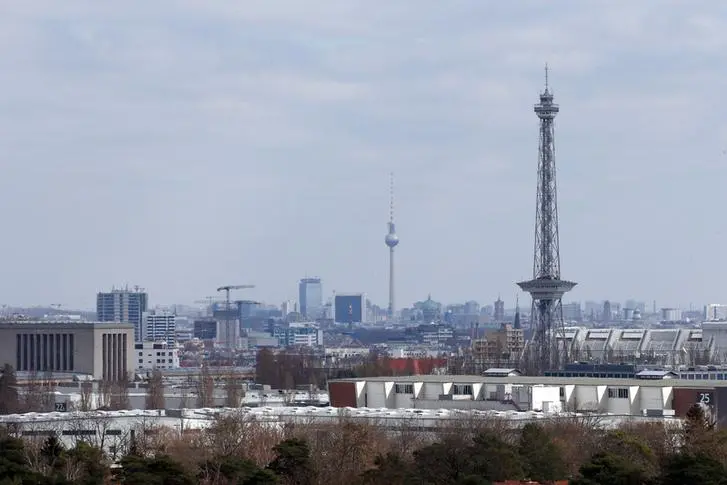PHOTO
BERLIN- Germany is likely to reach a peak of its fourth wave of COVID-19 infections by mid-December and this could mean 6,000 intensive care beds occupied by Christmas, the country's association for intensive care medicine (DIVI) said on Wednesday.
Andreas Schuppert, a forecaster for the DIVI association, told a news conference he was "moderately optimistic" the peak in new cases would come in the next two weeks, but warned this would take time to have its full impact on hospitals.
"It is an ominous situation," DIVI president Gernot Marx told reporters. "We would be well advised to react immediately. We must get ahead of the situation."
About 4,600 intensive care beds are currently occupied by COVID-19 patients, compared with a previous high of 5,745 on Jan. 3 when Germany was in a full lockdown.
However, the DIVI said a shortage of nursing staff means Germany now only has about 9,000 beds where patients can receive artificial respiration, down from 12,000 a year ago.
The Robert Koch Institute, Germany's state infectious disease agency, reported 67,186 new COVID-19 cases on Wednesday, up 302 from a week ago, and 446 deaths, the highest daily figure since Feb. 18 - bringing the overall death toll to 101,790.
However, the seven-day incidence rate per 100,000 fell for a second day to 442.9 people, from 452.2 people on Tuesday.
Germany's federal and regional governments agreed on Tuesday to take action, including stepping up the vaccination campaign and restricting contact, especially for unvaccinated people.
Already criticised by scientists for acting too late, the leaders agreed to take firm decisions on Thursday on proposals such as compelling customers to show proof of vaccination or recovery in shops and limiting numbers of people at big events.
Four people in southern Germany have tested positive for the newly identified Omicron coronavirus variant even though they were fully vaccinated, the public health office in the state of Baden-Wuerttemberg said.
Three of the infected people returned from a business trip to South Africa on Nov. 26 and Nov. 27 respectively, and the fourth person is a family member of one of the returnees. All four showed moderate symptoms of COVID-19.
(Writing by Paul Carrel and Emma Thomasson Editing by Kirsti Knolle, Peter Graff and Mark Heinrich) ((paul.carrel@thomsonreuters.com))





















